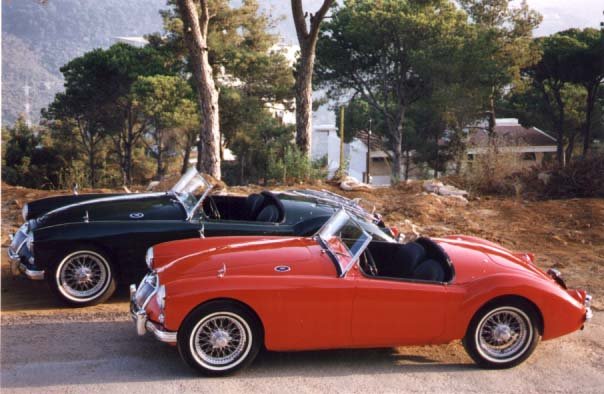The need for process improvement was identified last September, when the institution held its first-ever strategic planning meeting for the Automotive Restoration Program. Rather than involving only faculty and college administration, the off-site conference included participants like Jonathan Klinger of Hagarty Insurance (a McPherson graduate); Paul Russell of European restoration specialist Paul Russell and Company; Scott George of The Collier Collection; and Adam Bank of Rad Rides by Troy. Though the college views its existing curriculum as solid, the focus of the planning meeting was on improving the program to better predict changes to the industry in the coming years, in order to best shape a program relevant to student needs.
To experience what world-class shops collections do differently, the college sent a team of seven faculty, two students and two advisers (one of whom will be joining the staff this fall) to tour a series of facilities and collections in California. The shop tour consisted of visits to Competition Touring Cars, McGee Motor Sports and John Anderson Racing Services, all located at Sonoma Raceway. Next, the team visited Daryly Hollenbeck’s Vintage Color Studio, followed by stops at Phil Reilly & company (vintage car repair), Moal Coachbuilders, Roy Brizio’s Street Rods, and Canepa Design. The private collections toured included those held by John Bertolotti, Arturo Keller, John Mozart and Larry Carter, where the team got to experience everything from brass-era cars through contemporary race cars.
Given that the school trains students to work in a variety of automotive-themed careers, such a diverse approach to program development makes good sense: While many program graduates pursue hands-on careers in auto restoration, others go to work for auction houses, automotive collections or insurance companies, bringing with them a unique perspective on the industry as a whole. McPherson students have even participated in The Great Race, where this year’s team captured the X-Cup (aimed at those in auto-themed school programs) for the second time in two years.
The key to any automotive restoration program is giving the students the right tools to train on, and McPherson is looking to make key improvements in this area as well. Updates are planned for the engine lab, including a new engine dynamometer; although Automotive Restoration Program vice president Amanda Gutierrez pointed out that this is still in process. The metals lab has just received a Pullmax P5 power hammer, and judging from the school’s Facebook feeds, it’s been all hands on deck this summer in an attempt to get labs and work benches refurbished in time for the fall semester.
The school even recognizes the need for faculty professional development, though given the unusual focus of its programs, off-the-shelf continuing education hardly applies. Instead, McPherson is examining the possibility of short-term paid internships, where faculty would be given the opportunity to work for shops, collections or even museums to gain real-world experience. Such programs would cost the college a considerable amount of money, and as a non-profit, funding for any program needs to be raised in advance.
As for the hardware upgrades to the program’s labs, the same constraints apply. Per Guitierrez, one of the school’s biggest challenges is balancing upgrades that are needed immediately with upgrades that fit in the budget; as a non-profit, the college is always looking for participation and support from equipment vendors. Giving the students the right equipment to work on is a key component of McPherson’s focus on excellence, as the ultimate goal of the Auto Restoration Program is equipping students to work at the highest level in their chosen automotive fields.
photo credit: © 2014 hemmings.com
text credit: © 2014 Kurt Ernst / hemmings.com

